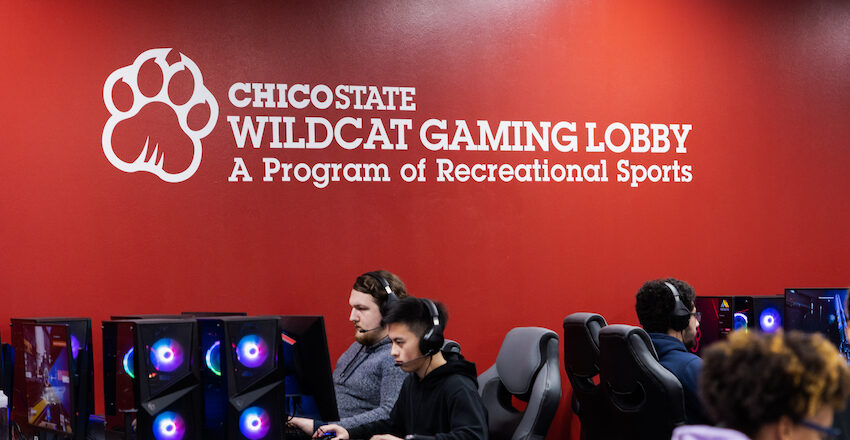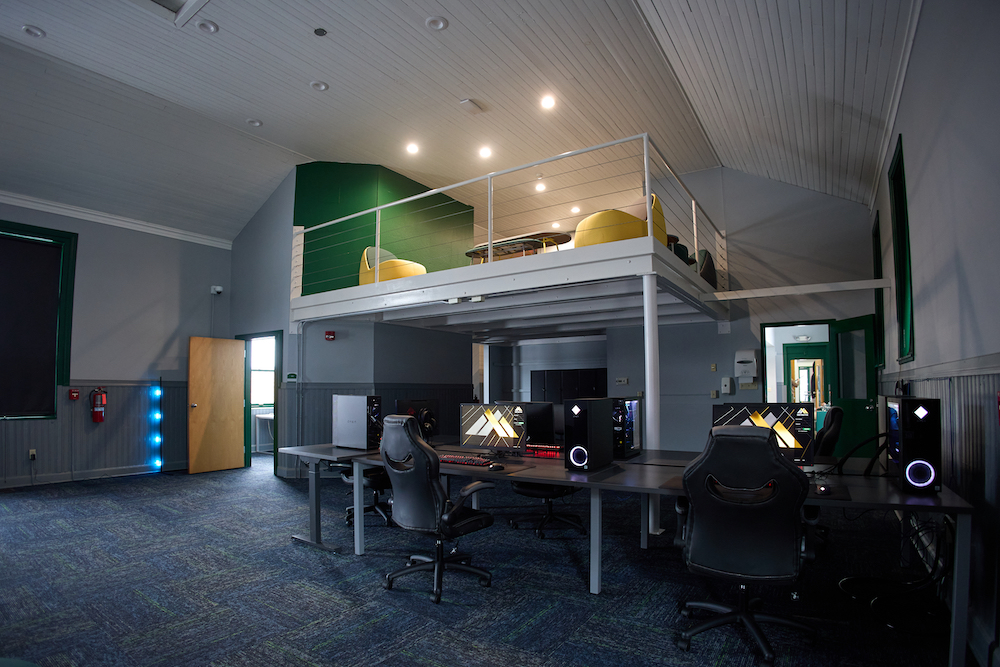A gaming PC often has much better performance that allows it to run and store multiple different high-level games to play at any given-time than a standard PC. A common problem with ‘regular’ PCs is ‘lag’, meaning that the video card in the device cannot keep up with the demanding processes of some video games. Gaming PCs are equipped with top-end video cards, good memory storage, and CPUs that last much longer than a standard PC.
Let’s Get Gaming
There is a lot to learn and set up when you get into PC gaming. Whether you’re deciding what PC to buy or how to optimize your home Wi-Fi, take advantage of Esport Supply infographics, blog posts, and videos to set you up for success.

Player Resource Center
-
Buying Your PC
When buying a PC, there are several factors to consider. You need to determine the purpose of your computer, whether for gaming, productivity, or general use. You also need to consider the specifications, including the processor, RAM, storage, and graphics card. The budget is also a crucial factor as it determines the quality and performance of the PC. It's essential to research different brands and models, compare prices, and read reviews before making a purchase.
-
Setting Up Your PC
Setting up your PC requires unpacking all the components, including the monitor, keyboard, and mouse, and connecting them to the CPU. You also need to connect the power supply and turn on the computer. Once the computer is on, you need to configure the operating system, set up user accounts, and install essential software programs such as antivirus and productivity tools.
-
Internet Setup
Internet setup involves connecting your computer to the internet via a modem or router. You need to ensure that you have an active internet service provider, and the modem or router is compatible with your computer. Once connected, you need to configure the network settings, including the SSID and password, and test the connection to ensure it's stable.
-
Setting Up Peripherals
Peripherals include devices such as printers, scanners, and external hard drives that are connected to your PC. To set up peripherals, you need to connect them to the computer via USB or other interfaces and install the necessary drivers. You also need to configure the settings to enable the peripheral to work correctly.
-
Setting Up Furniture
Setting up furniture involves choosing the right desk and chair to provide comfort and ergonomics when using your PC. You need to consider factors such as the height and size of the desk, the chair's adjustability, and the distance between the monitor and the keyboard. A good setup will ensure that you can work comfortably for extended periods without causing strain on your back, neck, or eyes.
-
Game Updates
Game updates are essential to ensure that your games are up to date, and you have access to the latest features and bug fixes. To update your games, you need to have a stable internet connection and launch the game's launcher. You can then check for available updates and download them.
-
Computer Refreshing
Computer refreshing involves removing unnecessary files, programs, and applications that may slow down your computer's performance. You can use built-in utilities such as disk cleanup or third-party applications to refresh your computer. It's also essential to update your operating system, drivers, and software regularly.
-
Community Setup
Community setup involves joining online communities and forums to interact with like-minded individuals and learn from their experiences. You can join gaming communities, productivity forums, or tech groups, depending on your interests. You can also create your own community to share your knowledge and insights.
-
Discord Tips, Tricks, and Best Practices
Discord is a popular communication platform used by gamers and communities. To get the most out of Discord, you need to customize your settings, including notification preferences and server settings. You can also use features such as voice and video chat, screen sharing, and file sharing. Best practices include setting clear rules and guidelines, moderating the community, and fostering a welcoming environment.
Frequently Asked Questions
Depending on level of use, we recommend refreshing your PC every 3 to 5 years per most manufacturers recommendation.
A gaming PC is made up of many factors that determine the quality of the build. The key components of a PC that will have the most impact to competitive gamers are the Graphics Card, Power Supply, Processor, Memory Card, and Storage. We’ll talk briefly about each component to describe the importance of it.
- Graphics Card: The graphics card in a gaming PC is the component that allows you to play graphically intensive games. Without a dedicated graphics card installed in your machine, your PC will struggle to load modern games that use 3D graphics and high-definition textures, and may not even launch them at all. For this reason, it is the most important component in a gaming PC, and will typically be the most expensive.
The most popular graphics cards are NVIDIA, labelled with two key indicators, the first 2 numbers and the last 2 numbers. The first 2 numbers call out what generation the video card is from, whereas the last 2 numbers indicate the version from that generation. The higher the number for both, the better performance. For example, a 1660 video card is ‘worse’ than a 2080 video card, and a 3050 video card is ‘worse’ than a 3080 video card. - Power Supply: The Power Supply is what powers the components inside and ensures the reliability and longevity of a system. A low-quality power supply can fail unexpectedly, taking other components with it if the current or voltage it’s supplying to your motherboard, graphics card, or storage drives spikes. Taking this into consideration, a high-quality power supply is always advised whenever purchasing a gaming PC.
- Processor/CPU: The processor, sometimes referred to as the CPU, is the brain of the computer. Without it, your competitive gaming setup wouldn’t turn on and couldn’t do anything. Games, especially the well-optimized ones, don’t tax the CPU nearly as much as the graphics card. Typically the lower the frame rates of your games, the lower the stress on the CPU, and that stress scales linearly as your frame-rate goes up. This is important because it means you need to be sure your pairing of graphics cards and processors doesn’t hit what is called a CPU “bottleneck”, or a point where the video card is waiting on the CPU to serve frames to your screen. All this is to say that when building or choosing a PC, you will want gaming PCs that support the latest models of CPUs if possible.
- Memory: Memory is often also called RAM or Random Access Memory. Having higher amounts of RAM will make any PC run faster and smoother, so look for PCs that have access to multiple ‘sticks’ of RAM, or large quantities of RAM, such as 32 Gigabytes (GB). Investing in good quality memory space also allows for much smoother broadcasting and streaming, as most of the game’s load will be put on your video card’s memory, or VRAM, so the extra space will allow both to run in tandem.
- Storage: Storage within a computer is vastly important to the longevity of a system and allows the user to download many different games, applications, and media without having the computer slow down. These are often categorized into either Hard Drives (HDs) or Solid State Drives (SSDs). For gaming PCs, you will almost always want a SSD for your PC, as these load games faster, allow for faster switching between applications, and speed up processes within the storage of your PC.
Yes, our gaming desks have warranties that range from 5-10 years and our gaming chairs provide warranties that range from 3-5 years.
Yes, all of our furniture options can be ADA compliant to ensure that your facility is as accessible to all as possible.
